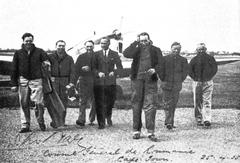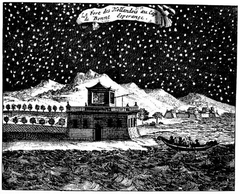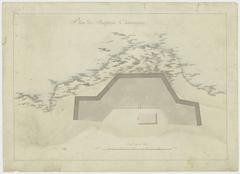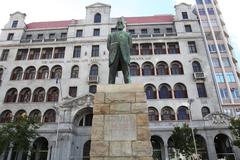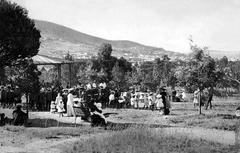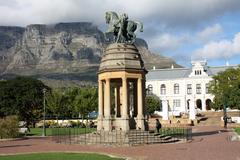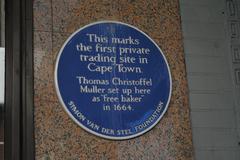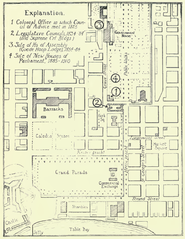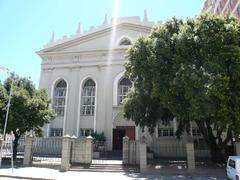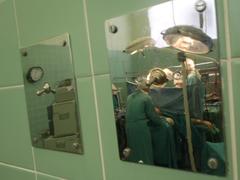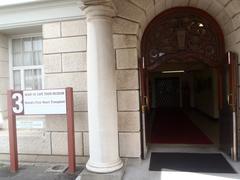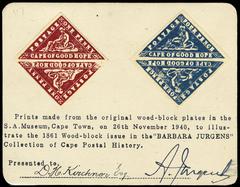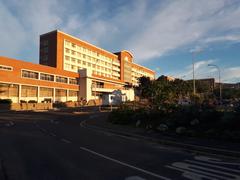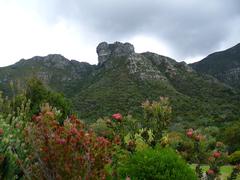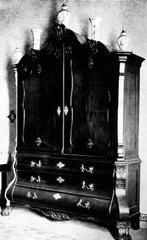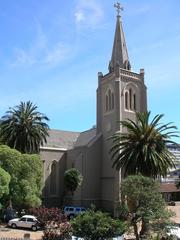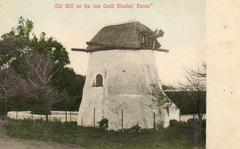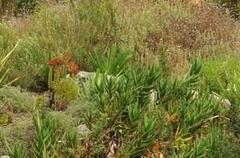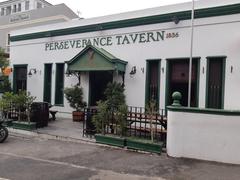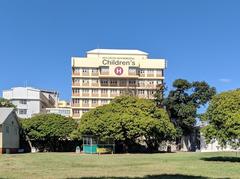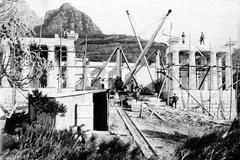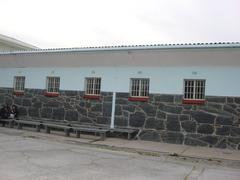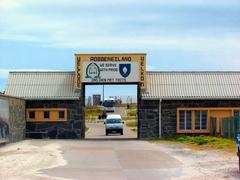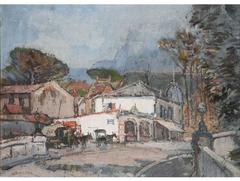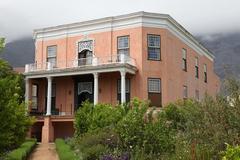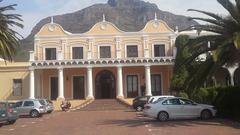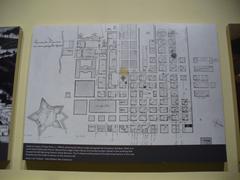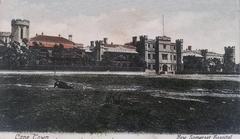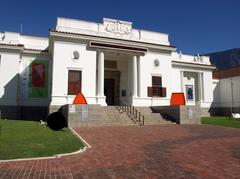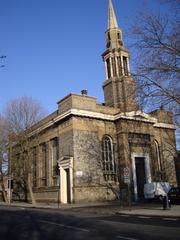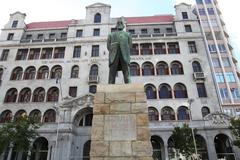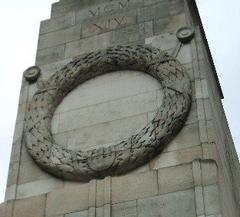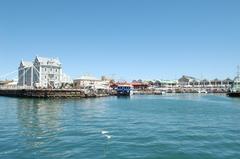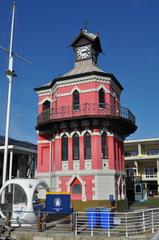Statue Of Sir Major General Sir Henry Timson Lukin
Statue of Major General Sir Henry Timson Lukin, Cape Town: Visiting Hours, Tickets, and Historical Significance
Date: 14/06/2025
Introduction
Nestled in Cape Town’s historic Company’s Garden, the statue of Major General Sir Henry Timson Lukin stands as both a tribute to a key figure in South African military history and a focal point for public reflection on the nation’s colonial and wartime past. Lukin, celebrated for his leadership during the Anglo-Zulu War, the Anglo-Boer War, and most notably World War I’s Battle of Delville Wood, is immortalized in bronze—a lasting memorial to his influence and the broader narratives of sacrifice and remembrance in South Africa.
Surrounded by cultural landmarks such as the South African National Gallery, Iziko South African Museum, and Parliament, the statue is easily accessible within the lush, public grounds of the Company’s Garden. This comprehensive guide covers the statue’s historical context, visiting logistics, nearby attractions, and tips for a meaningful visit.
For more detailed insights into the Company’s Garden and Lukin’s legacy, visit The Heritage Portal and the South African Military History Society.
Contents
- About the Statue: Historical Background & Artistic Features
- Cultural and Symbolic Significance
- Visiting Information: Hours, Accessibility, and Tickets
- Getting There & Facilities
- Nearby Attractions and Suggested Itinerary
- Best Time to Visit & Photography Tips
- Guided Tours, Educational Opportunities, and Events
- Frequently Asked Questions (FAQ)
- About Sir Henry Timson Lukin: A Brief Biography
- About the Company’s Garden
- Practical Tips for Visitors
- Useful Links
- Call to Action
About the Statue of Major General Sir Henry Timson Lukin
Historical Background
Sir Henry Timson Lukin (1860–1925) played a central role in South Africa’s military evolution. Born in England, he served in the Anglo-Zulu War, Basutoland Gun War, Bechuanaland Campaign, and the Anglo-Boer War (Wikipedia). As commander of the South African Brigade during World War I, Lukin led his troops through the harrowing Battle of Delville Wood, earning national and international honors.
The statue, unveiled in 1932 by then Governor-General Lord Clarendon, commemorates both Lukin’s military achievements and his dedication to veterans’ welfare. Funded by a national campaign, the monument reflects an era of honoring military leaders who shaped South Africa’s—and the British Empire’s—trajectory (South African Military History Society).
Artistic Description and Physical Features
The bronze statue, attributed to renowned sculptor Anton van Wouw, stands atop a stone plinth in dignified military regalia. Lukin is portrayed full-length, one hand resting on his sword, the other at his side—symbolizing readiness and composure. Detailed rendering of his uniform, medals, and facial features offers a realistic and authoritative presence. The base bears an inscription noting Lukin’s name, rank, and achievements (Wikimedia Commons).
The statue is surrounded by indigenous South African flora, integrating it into the garden’s tranquil landscape and making it an inviting spot for both intentional visitors and passersby.
Cultural and Symbolic Significance
The Lukin statue stands as a focal point for South African remembrance culture, particularly regarding World War I and the Battle of Delville Wood—a defining and tragic moment for the nation’s troops. It also symbolizes the complex colonial legacy of South Africa, as Lukin’s career coincided with the formation of the Union of South Africa and the consolidation of white settler unity (Wikipedia).
The memorial’s proximity to the Delville Wood Memorial, which represents the “two white races of South Africa (British and Afrikaans),” underscores its role in reflecting on the narratives privileged in early 20th-century commemoration (What to Do in Cape Town). In recent years, the statue has also prompted reflection and debate around issues of colonialism, exclusion, and the evolving nature of public memory in post-apartheid South Africa (Walk the Cape).
Visiting Information
Location and Accessibility
- Location: Company’s Garden, Cape Town City Centre, South Africa
- Access: The statue is outdoors in a public park, easily accessible via paved, wheelchair-friendly paths. Entry is free.
Visiting Hours & Entry
- Hours: Company’s Garden is open daily from 7:00 AM to 7:00 PM (may vary slightly seasonally).
- Entry Fee: None; access is free to all visitors.
Getting There
- By Car: Ample parking is available nearby, including paid street parking and public garages.
- Public Transport: MyCiTi buses and other public transport routes stop near the garden. Ride-hailing services like Uber are widely used in Cape Town (Cape Town travel tips).
- On Foot: The Gardens are centrally located and well signposted within the city center.
Facilities
- Restrooms, cafés, and seating areas are available within the Company’s Garden.
- The area is generally safe during daylight hours; exercise standard urban caution with valuables.
Nearby Attractions and Suggested Itinerary
- Delville Wood Memorial: Opposite the Lukin statue, commemorating South African soldiers in WWI.
- Iziko South African Museum: Natural history and cultural exhibits.
- South African National Gallery: South African and international art.
- Parliament Buildings: Historic and architecturally significant.
- St. George’s Cathedral, Slave Lodge Museum, Greenmarket Square: All within walking distance.
Combine your visit to the statue with these sites for a comprehensive exploration of Cape Town’s cultural and historical landscape (PlanetWare).
Best Time to Visit & Photography Tips
- When: Mornings and late afternoons offer the best lighting and fewer crowds.
- Seasons: Spring (September–November) and autumn (March–May) are especially pleasant.
- Photography: The statue’s orientation and garden setting provide excellent photo opportunities. Respect the site by not climbing on the statue.
Guided Tours, Educational Opportunities, and Events
- Walking Tours: Many heritage and city walking tours include the statue, providing valuable historical context (Cape Tourist Guides Association).
- Special Events: Remembrance Day and other commemorative events are sometimes held at the site.
- Interpretive Materials: On-site plaques offer basic information; for deeper insight, consult guides or nearby museums.
Frequently Asked Questions (FAQ)
Is there an entry fee to visit the statue?
No, visiting the Company’s Garden and the statue is free.
What are the visiting hours?
The Gardens are open daily from 7:00 AM to 7:00 PM.
Is the site wheelchair accessible?
Yes, paths are paved and accessible for wheelchairs and strollers.
Can I take photos?
Yes, photography is permitted. Please do not climb on the statue.
Are guided tours available?
Yes, several local tour operators include the statue in historical walking tours.
Are there restrooms and cafés nearby?
Yes, facilities are available within the garden and at adjacent museums.
About Sir Henry Timson Lukin: Brief Biography
Lukin’s military career spanned several colonial wars and culminated in his leadership of the South African Brigade during World War I. His actions at Delville Wood became emblematic of South African sacrifice on the Western Front. After retiring, Lukin was active in veterans’ welfare and was knighted for his services (Cam Simpson Substack).
About the Company’s Garden
Established in the 17th century by the Dutch East India Company, the Company’s Garden has evolved into a vibrant public park and heritage site, featuring monuments, historic buildings, and botanical attractions (Heritage Portal).
Practical Tips for Visitors
- Dress: Casual, with a warm layer for Cape Town’s variable weather.
- Safety: Stay alert, especially with valuables.
- Time: Allow 30–45 minutes for the statue and garden; longer if visiting nearby museums.
- Etiquette: Respect the memorial nature of the site.
Useful Links
- Official Company’s Garden Information
- Cape Town Tourism
- Heritage Portal – Company’s Garden History
- PlanetWare – Cape Town Attractions
Call to Action
Discover Cape Town’s rich history—plan your visit to the Sir Henry Timson Lukin statue today! For guided audio tours, download the Audiala app. Follow us on social media for updates on events, travel tips, and heritage insights.
References
- The Heritage Portal – Company’s Garden History
- South African Military History Society
- Cape Town Tourism
- PlanetWare – Cape Town Attractions
- Wikipedia – Henry Timson Lukin
- What to Do in Cape Town – Statues
- Walk the Cape – Cape Town Statues
- Mapcarta – Lukin Statue Location
- Cape Tourist Guides Association
- Cam Simpson Substack
- Cape Town travel tips



